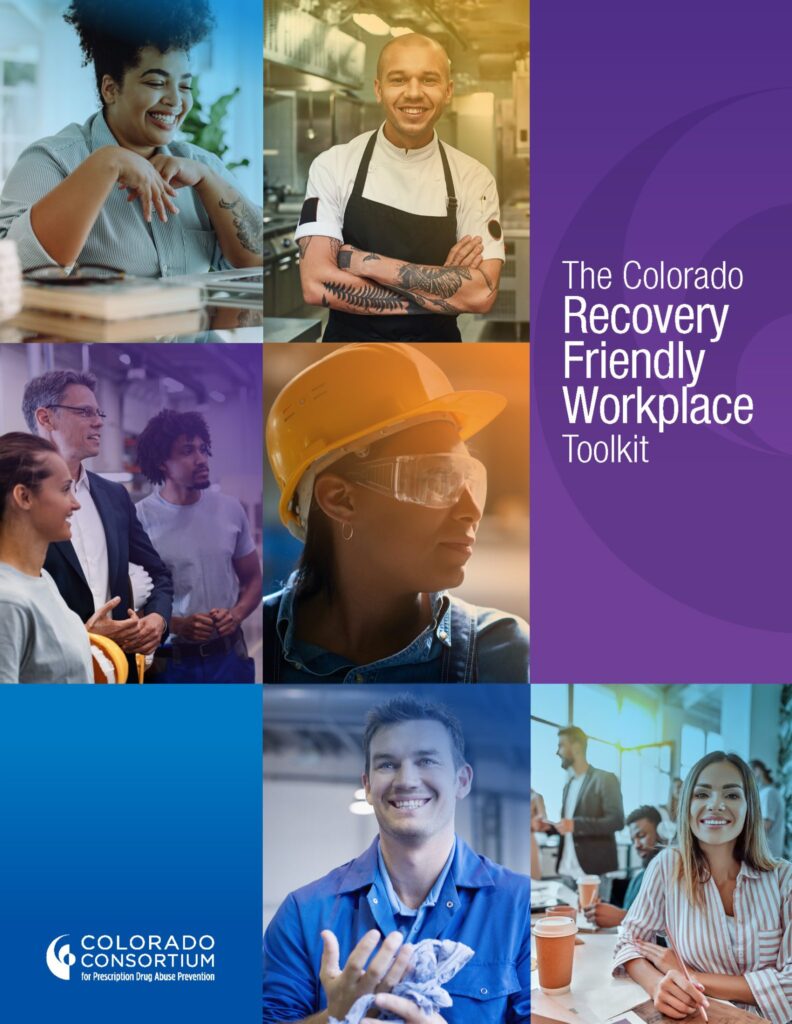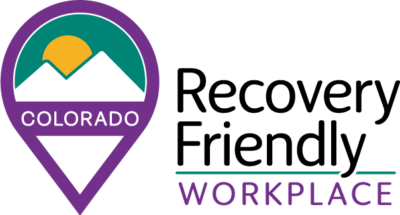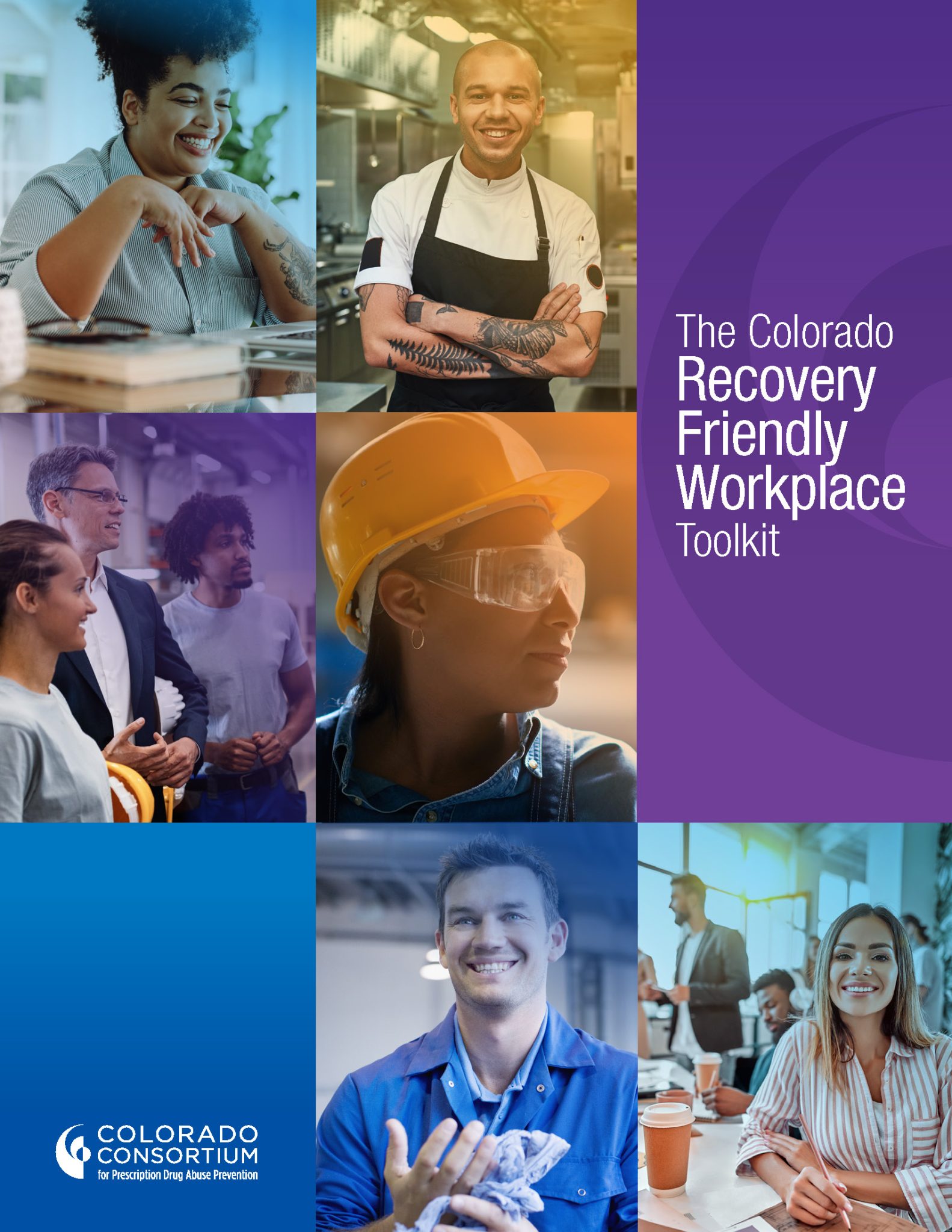Program helps employers respond to mental health, substance use, addiction challenges in workforce

If an employee handbook states that workers who are under the influence of drugs or alcohol on the job will be terminated, that policy makes employees hesitant to discuss their substance abuse or mental health struggles with supervisors.
So, the Colorado Recovery Friendly Workplace Initiative suggests updating employee handbook policies to state that the company cares about the employee and can provide support, before termination becomes a possible action.
Recovery Friendly Workplace, a nationwide effort currently active in 30 states, is an expanding initiative to protect the mental health of workers while helping workers retain their jobs. In Colorado, the effort is spearheaded through the Center for Health, Work & Environment academic center at the Colorado School of Public Health that advances worker health, safety and well-being. The center is located at the University of Colorado Anschutz Medical Campus in Aurora.
The statewide RFW initiative acknowledges the critical role that employers have in elevating the importance of mental health in the workplace, and the program helps to equip employers to address those issues with employees. The initiative explains that individuals who are employed compared to those unemployed are more likely to demonstrate lower rates of returning to problematic substance use, higher rates of long-term recovery, less unlawful activities and improvements in quality of life.
Currently nine employers in Routt County including businesses and nonprofits are participating in the state’s Recovery Friendly Workplace program, which is being offered for free to 10 Yampa Valley employers through The Health Partnership. The program coaches employers about how to help address major mental health challenges facing their workforce, including depression, suicide and substance use disorders.
David Shapiro with the Center for Health, Work and Environment has provided review sessions for the nine local employers. Shapiro said top challenges for employers include supporting an individual’s mental health needs, managing employee stress and supporting individuals in recovery in their return to work.
Executive Director Lindsay Kohler, at participating nonprofit Partners for Youth, knows her employees have a tough job supporting youth to face life’s challenges, so supporting the mental health of her staff is just as important.
“We are just starting to figure out what to do in the workplace to support when someone has diagnosed mental health condition or is experiencing a substance abuse disorder. Not talking about it continues to create stigma around the topic. We are at a time and place now where companies want to have the conversation, and they want to do it emphatically and support their employees.” -David Shapiro, Center for Health, Work and Environment
Kohler said although employee procedures and policies at Partners received a strong review, she wants to ensure staff feel comfortable talking with their boss about challenges.
“It’s more about how they will be met with support, empathy and understanding and some options for how they take care of themselves while still doing their job,” Kohler said. “I learned we need to be really clear about offering connections to support if needed.”
RFW helps employers learn how to recognize mental health issues, offer empathy and connect workers with The Health Partnership that links workers with specific resources.
Drew Williams, owner at Trouvaille Consultants, signed up for the initiative to be able to understand warning signs, break down barriers in company conversations about mental health and connect employees to the correct resources.
“We wanted to really have a business that is taking care of the gaps in mental health that we see,” said Williams, who said the wait for appointments for mental health counselors may be two to four weeks.
Williams wants his employees to know they would not receive negative consequences when deciding to bring any mental health issues to managers.
Shapiro said employers made need to provide accommodations for workers in recovery when returning to stressful jobs. Some steps include offering flexible work schedules and locations, reducing the number of appointments, adding in short breaks between appointments or establishing a quiet or mediation break room.
Participating RFW employers sign a pledge to prioritize mental health, addiction prevention, treatment and recovery support for all employees. Part of the pledge is to create a workplace where it is safe to have uncomfortable and often difficult conversations about addiction and mental health.
The Health Partnership has funds for one more employer to sign up for the free program, and additional employers can participate for a $350 fee. Interested employers can contact Nele Cashmore at ncashmore@ncchealthpartnership.org.
Shapiro said small businesses may benefit even more from participating as they often do not have human resource professionals on staff. Other local employers that have stepped up to participate so far include Dusky Grouse Coffee, Primrose restaurant, LiftUp, Advocates of Routt County and Steamboat Fit.
“It’s clear the (Yampa Valley) community has identified mental health and substance abuse disorder as focus areas, and we are starting to see small businesses participate,” Shapiro said. “What we have seen is a real interest in the initiative due to the pervasive substance abuse in rural resort areas.”









